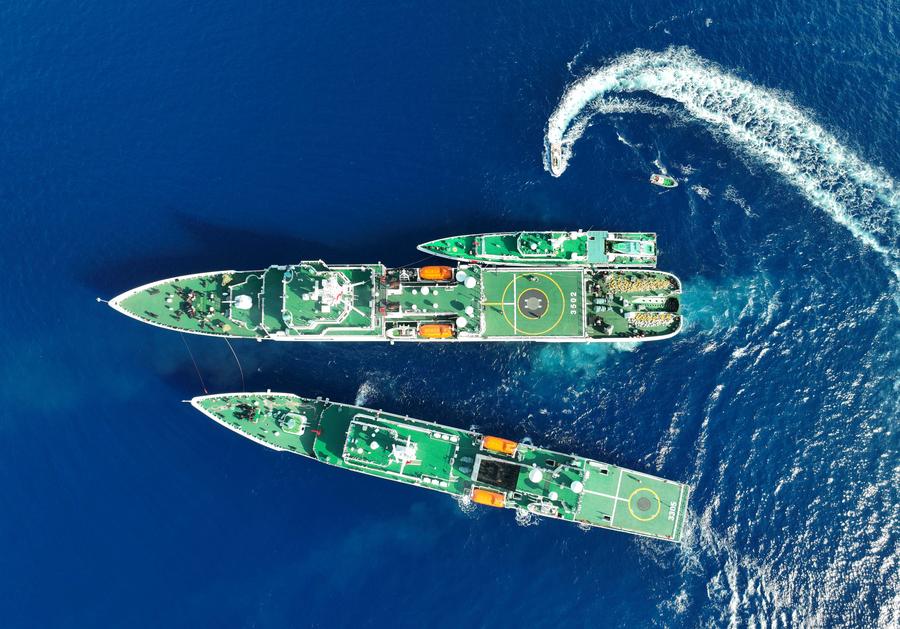
The United States and Japan are quickening their steps in pushing ahead with the "Indo-Pacific" strategy aimed at containing China.
To strengthen collaboration in intelligence gathering, the US will deploy an official to the US embassy in Tokyo in July who will be tasked with overseeing the monitoring of Chinese governmental and business activities, US State Department sources said on Saturday. The department has already dispatched about 20 similar officials to US embassies in other capitals, including Bangkok, Brussels, Rome and Sydney, to be in charge of monitoring China. The Tokyo posting will be Washington's first of its kind in East Asia.
READ MORE: Japan urged to respect one-China principle
In another China-targeted move, US Ambassador to Japan Rahm Emanuel set his feet on the westernmost island of Yonaguni in Okinawa prefecture on Friday, becoming the first US ambassador to visit the island, which is only about 110 kilometers from Taiwan.
The visit comes after the US and Japan agreed to adjust the US troop presence in Okinawa in part to enhance anti-ship capabilities that would be needed to deal with any "emergency" around Taiwan or in the South or East China seas. Emanuel, a China hawk himself, has defined the US-Japan alliance as one entering an era of "projection" into the "Indo-Pacific".
Actually, the strengthened US-Japan alliance, as well as Japan drifting away from its previous position as a pacifist country, has markedly increased tensions in the region.
Encouraged by the US, Japan has announced that it will more than double its military spending to 2 percent of gross domestic product in 2027, a major shift in a country whose "pacifist" Constitution has limited its military to self-defense since World War II. Japan has also lifted the postwar ban on exports of weapons, and been active in helping form regional groupings targeting China in collaboration with the US and its other allies.
ALSO READ: US should abandon ‘sour grapes’ mentality when China's green products excel
In particular, the US has tried to push Okinawa, which already hosts around 70 percent of the US' military bases in Japan, to the very front line in any future military confrontation with China. Missile bases have been set up on the main and outlying islands of Okinawa, and the US military regularly holds joint exercises there with Japan's Self-Defense Forces, with China being positioned as the enemy. Thus it was no surprise that local residents staged a protest during Emanuel's Okinawa visit, as they worry they may be the first victims in any conflict between the US and China.
Washington and Tokyo must drop their Cold War mentality and stop interfering in China's internal affairs or trying to drive a wedge between China and its neighboring countries in the South China Sea, and instead explore ways to make tangible contributions to regional peace and stability.


